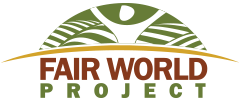 | |
| FOR IMMEDIATE RELEASE February 15th, 2016 | CONTACT: Lauren Stansbury, 402-540-1208 Email: [email protected] Kerstin Lindgren, 617-680-9862 Email: [email protected] |
Fair World Project to Hold “Let’s Talk Living Wage” Panel Discussion at
Expo West
Progressive Businesses and Organizations to Hold Industry Discussion on
Movement to Raise the Minimum Wage
PORTLAND, OR – Leading Fair Trade advocacy organization, Fair World Project (FWP), has joined with Dr. Bronner’s, Ben & Jerry’s, Cambridge Naturals, The Fairness Project, and Business for a Fair Minimum Wage, to hold a panel discussion at Natural Products Expo West, “Let’s Talk Living Wage.” Leaders from these progressive businesses and organizations will discuss why it is imperative to support campaigns to raise the minimum wage, explain how successful businesses benefit from paying higher wages to their workers, and the importance of the Natural Products Industry joining the movement to guarantee a fair, living wage.
| WHAT: | Let’s Talk Living Wage – An Industry Discussion on the Movement to Raise the Minimum Wage |
| WHEN: | Saturday, March 12 – 11am – 1pm |
| WHERE: | Marriott Hotel, 700 Convention Way, Anaheim, CA 92802 Platinum Ballroom 3 |
Members of the media are invited to RSVP to [email protected]
PANELISTS:
David Bronner, Cosmic Engagement Officer (CEO), Dr. Bronner’s will discuss why Dr.Bronner’s has become involved in both local and federal campaigns to raise the wage and how this relates to their fair trade work throughout their supply chains.
Michael Kanter, Co-Founder and Chief Visionary Officer, Cambridge Naturals will address the importance of raising the minimum wage from a small business perspective. He will speak about how doing so can benefit both employees and the general success of a business.
Rob Michalak, Global Director of Social Mission, Ben & Jerry’s will discuss Ben & Jerry’sinternal work to calculate a livable wage for all employees, how it works, and what effect paying higher wages has had, in addition to why the company chose to get involved with advocacy for all businesses to support raising the minimum wage.
Ryan Johnson, Executive Director, The Fairness Project will describe the obstacles to action at the federal level, and share highlights from local and state campaigns around the country.
Holly Sklar, Chief Executive Officer (CEO), Business for a Fair Minimum Wage will discuss the case for why raising the minimum wage is good for business and will share information on how to get involved in a national network of businesses advocating for fair minimum
wages.
Kerstin Lindgren, Campaign Director, Fair World Project, will moderate the discussion.
“Dr. Bronner’s is committed to fairness throughout our supply chain, and that also applies to our employees here at home,” said David Bronner, CEO of Dr. Bronner’s. “Paying workers less-than a living wage creates a corporate welfare system in which public funds supplement unlivable low wages. It’s time to fight for a living wage, and in doing so raise the standard for businesses’ responsibility toward their employees.”
“The increasing inequality in the United States is immoral and damaging the country’s economy and society. By paying better wages, businesses can help lift millions out of poverty, improve the prospects of millions of children and contribute to economic growth, which serves us all well,” said Rob Michalak, Global Director of Social mission with Ben & Jerry’s.
“Low wage workers are disproportionately women and people of color,” said Kerstin Lindgren, Campaign Director of Fair World Project. “Raising the minimum wage mitigates some of the structural discrimination these demographics face, as we work toward lasting equality at all levels of society.”
According to polls, the majority of small businesses and hiring managers support raising the minimum wage. Two federal minimum wage bills have been introduced in Congress: S.1150, the Raise the Wage Act, that would raise the federal minimum wage to $12 an hour by 2020; and S.1832, the Pay Workers a Living Wage Act, which would raise the minimum wage to $15 an hour by 2020. Raising the minimum wage has been shown to boost businesses and the economy by putting more money in the hands of consumers who most need it and are most likely to spend it. Other business benefits include lower employee turnover, reduced hiring and training costs, increased productivity and better customer service. Yet despite these benefits, widespread support among consumers and businesses, and numerous wage victories at the state and local level, the federal minimum wage has been stuck at $7.25 – just $15,080 annually for full-time workers – since 2009. The Let’s Talk Living Wage panel and discussion will strengthen the Natural Product Industry’s engagement in this important movement to build economically and socially sustainable businesses.
###
Fair World Project (FWP) is a non-profit organization whose mission is to protect the use of the term “fair trade” in the marketplace, expand markets for authentic fair trade, educate consumers about key issues in trade and agriculture, advocate for policies leading to a just economy, and facilitate collaborative relationships to create true system change. FWP publishes a bi-annual publication entitled For a Better World.
For more information, visit: https://fairworldproject.org.


